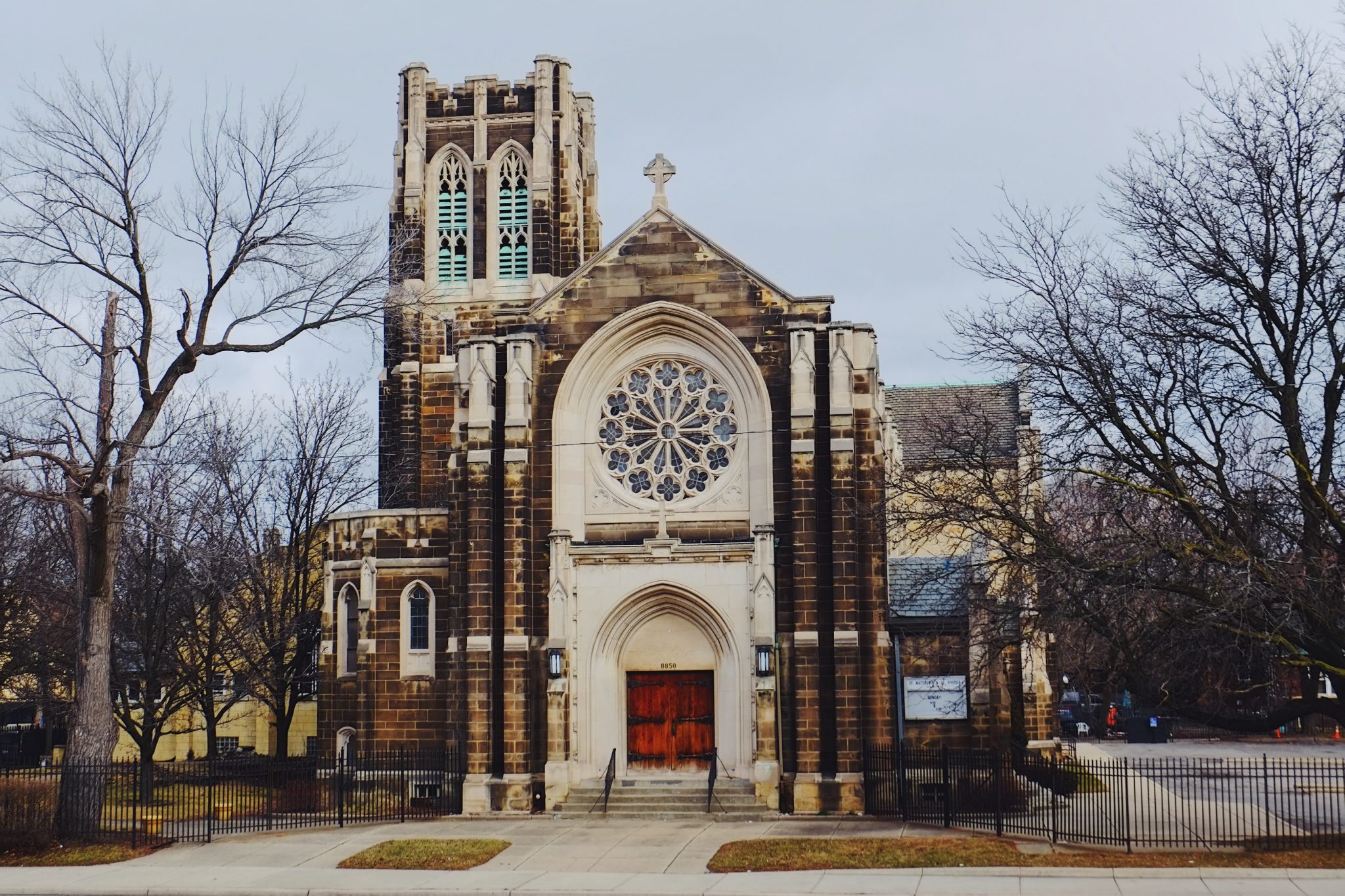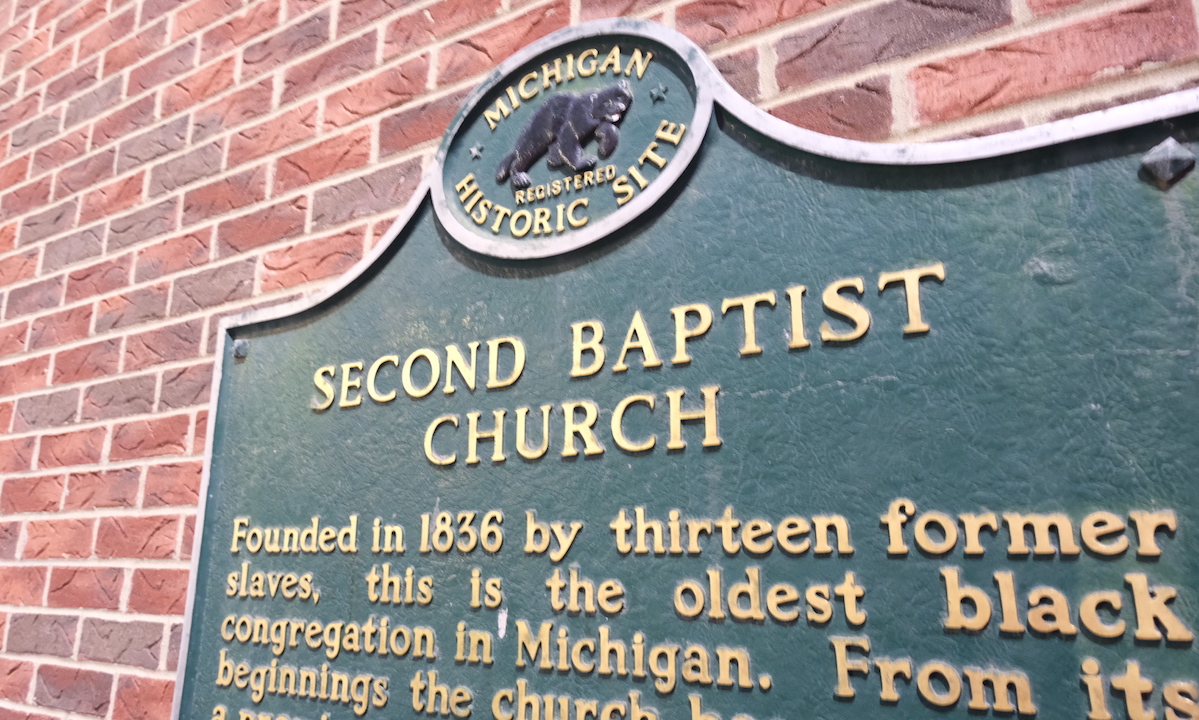Tour the historic sites that shaped Detroit’s civil rights legacy
Detroit is one of the most important cities for African-American history in the country — and CultureShift is highlighting the city’s connection and role in the Civil Rights Era.

On Monday, the nation will be commemorating the life and legacy of Martin Luther King Jr.
But don’t let that stop you from marking the occasion over the weekend by touring key Civil Rights sites in Detroit.
“Detroit is one of the most important cities to understand African-American history in the country.” – Jamon Jordan, Black Scroll Network History & Tours
Before he marched on Washington, King delivered a version of his “I Have a Dream” speech in 1963 at Cobo Hall, now known as the TCF Center. (Editor’s note: As of January 2023, TCF Center is now known as Huntington Place.) As a child, he visited the historic Second Baptist Church on Monroe Street in Detroit, and spoke at the King Solomon Baptist Church following the Montgomery Bus Boycott.
But the movement’s history runs deep in Detroit.
Jamon Jordan is a historian and former teacher in Detroit who founded the Black Scroll Network History & Tours about eight years ago.
“Detroit is one of the most important cities to understand African-American history in the country,” says Jordan.
CultureShift’s Ryan Patrick Hooper spoke to Jordan about this history and the echoes we see today.
Touring civil rights history in Detroit
Fannie Richards Home

Location: At Rivard St. near East Lafayette St.
Fannie Richards was Detroit’s first Black public school teacher, according to Jordan. In 1863, she opened a private school for Detroit’s African American children. Over 100 years later in 1974, her home was added to the historic registry.
Second Baptist Church

Location: 441 Monroe Street, Detroit, Mich. 48226
This church, located in Greek Town, was founded by leaders of the Underground Railroad and is the oldest church owned by African Americans in the Midwest, according to Jordan.
“Second Baptist Church is the first African-American church in the state of Michigan,” Jordan says. “The underground railroad [in Detroit] would be centered at Second Baptist Church.”
King spoke here several times, and even visited as a child when his father was a speaker.
Dr. Ossian Sweet’s Home

Location: 2905 Garland Ave. (South of Ford Freeway)
Dr. Ossian Sweet was an African American doctor who used firearms to defend his home against a white mob that wanted to force his family out. Famed attorney Clarence Darrow defended him in trial, resulting in eventual acquittal.
Northern High School

Location: 9026 Woodward Ave.
Northern High School was the site of a student-led walkout during the civil rights era, which resulted in the firing of the principal, vice principal and school officer, according to Jordan. The school closed in 2007 due to financial issues.
Rosa Parks Home

Location: 3201 Virginia Park
Civil Rights icon Rosa Parks lived at this location for 26 years.
“Many people know about Rosa Parks living in Montgomery, Alabama and refusing to give up her seat, but she lived in Detroit longer than she lived in Montgomery,” says Jordan. “She doesn’t stop being an activist when she comes to Detroit. She’s involved in fighting against housing discrimination and campaigning for Congressman John Conyers.”
St. Matthews Episcopal Church

Location: St. Antoine and Congress, later moved to Paradise Valley
St. Matthews was the third African American church in Detroit, founded by leaders of the Underground Railroad.
King Solomon Baptist Church

Location: 6100 14th St.
This national historic site had a prominent role in the civil rights movement. King spoke here following the Montgomery Bus Boycott and Malcolm X delivered his “Message to the Grass Roots” speech in 1963, one of his most influential speeches.
Support the news you love.
Here at WDET, we strive to make our journalism accessible to everyone. As a non-profit public media institution, we maintain our journalistic integrity through independent support from readers like you. Because you value WDET as your source of news, music, and conversation, please make a gift of support today. Even $5 helps!
